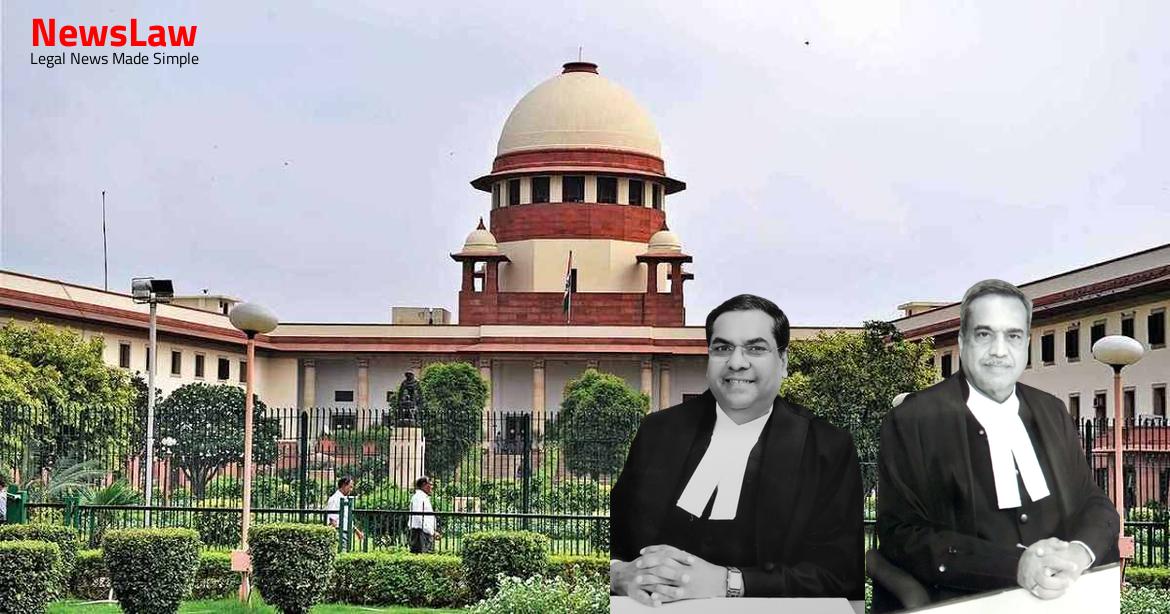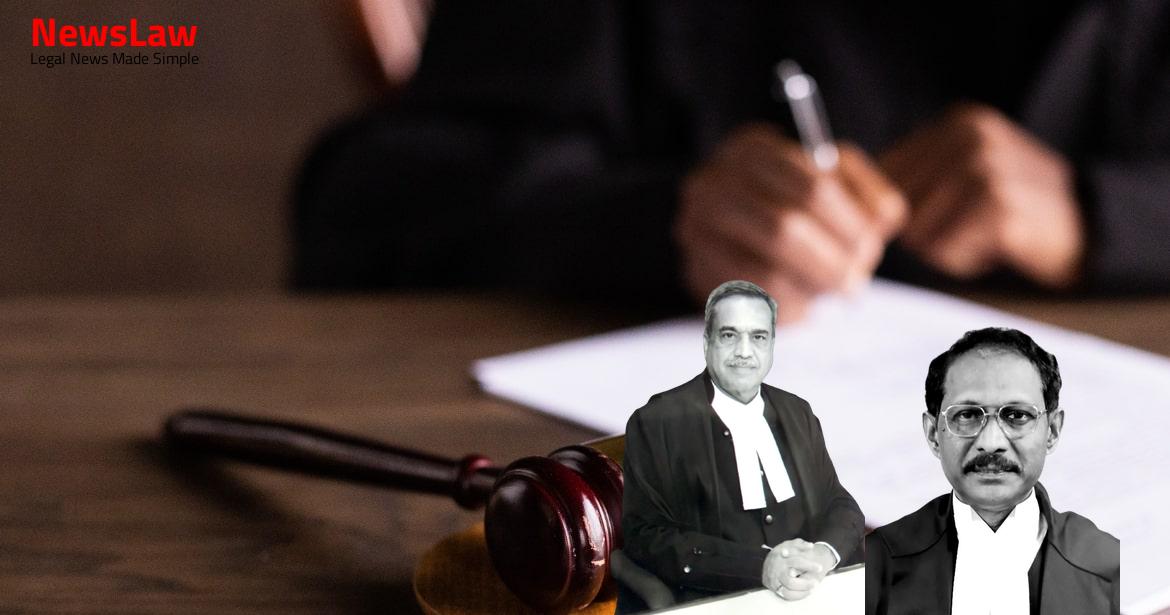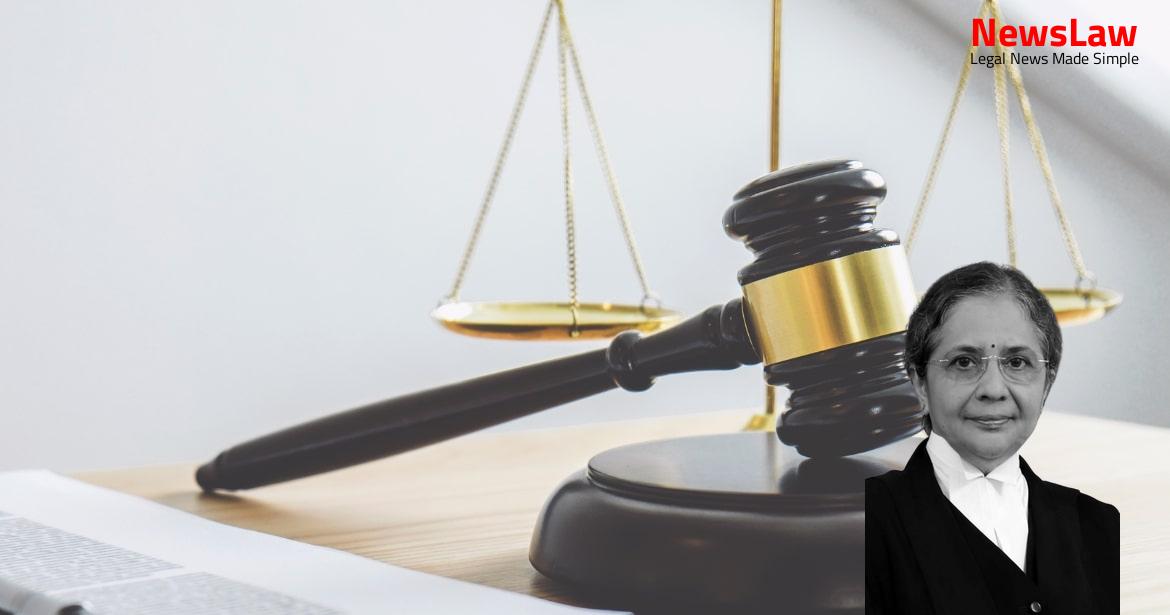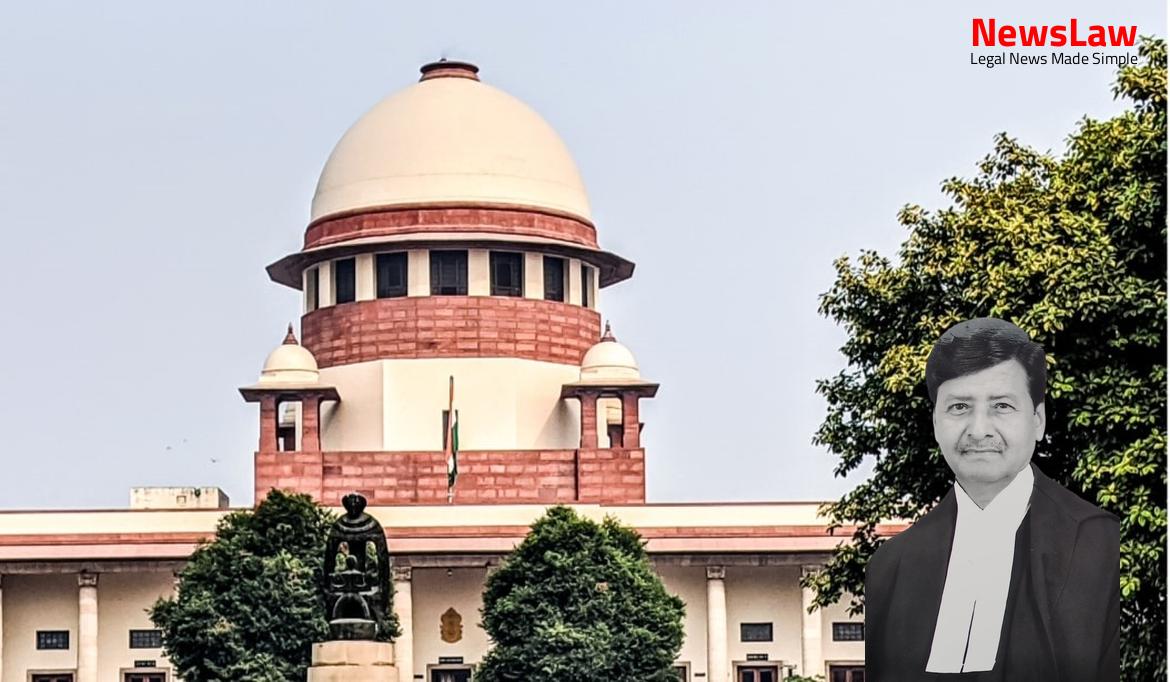In a recent legal case involving a murder, the focus is on the critical analysis of the High Court’s decision to grant bail to the accused. The court’s legal reasoning and assessment of the evidence in light of the severe charges laid out are under scrutiny. This summary sheds light on the judicial intricacies surrounding the bail judgment in a case of grave magnitude.
Facts
- Respondent No.1 – accused filed Criminal Appeal No.1502 of 2018 after the bail application was rejected by the Sessions Court.
- High Court passed a judgment on 04.02.2019 releasing respondent No.1 on bail in connection with the case.
- Original complainant filed an appeal against the High Court’s decision releasing respondent No.1 – accused.
- The facts of the case in Criminal Appeal No.1655 of 2021 arising from the judgment on 04.02.2019 in Criminal Appeal No.1502 of 2018 are narrated for reference.
- The original complainant and her relatives went to collect scrap outside a factory where they were abused and beaten by five accused persons.
- Investigation was conducted by Dy.SP Gondal division and later by Dy.SP (SC & ST Cell) Rajkot Rural.
- One of the accused, respondent No.1, had previously filed a bail application which was dismissed by the Sessions Court.
- Mukeshbhai, the complainant’s husband, was tied to the factory gate and beaten by the accused, leading to his death.
- An FIR was registered against the accused for various offenses including murder under Sections of the Indian Penal Code and the SC/ST Act.
- After investigation, all five accused were charged for multiple offenses related to the murder of Mukeshbhai.
Also Read: Ruling on Circumstantial Evidence in Murder Case
Arguments
- The appellant’s counsel argues that the accused Jaysukhbhai Devrajbhai Radadiya not only beat the deceased but also tied him up, preventing him from moving.
- The appellant contends that the High Court should not have discounted the eyewitness statements and released the accused on bail for a serious offense involving the brutal murder of the complainant’s husband.
- The State’s counsel supports the appellant’s argument, stating that the release of the accused on bail was a material error by the High Court.
- The High Court did not properly consider the gravity of the offenses the accused were charged with, including sections of the Indian Penal Code, Scheduled Castes and Scheduled Tribes Act, and the Gujarat Police Act.
- The manner in which the accused beat the deceased resulting in his death was highlighted, emphasizing the seriousness of the charges against the accused.
- The counsel argues that the High Court overlooked crucial evidence, such as mobile and CCTV recordings of the incident, and the identification of the accused in Test Identification Parade by the eyewitnesses.
- Shri Purvish Jitendra Malkan, representing accused Jaysukhbhai Devrajbhai Radadiya, adopted the submissions made by Shri Ahmadi for co-accused Tejas Kanubhai Zala.
- Counsel requested not to cancel bail after two and a half years citing the progress in the trial proceedings.
- State counsel conceded the delay in filing an appeal against the bail orders in such a serious matter.
- State counsel mentioned the possibility of delayed decision-making as a reason for not filing an appeal yet.
- Accused Tejas Kanubhai Zala was granted bail in February 2019 and has not misused the liberty post bail.
- The Court observed and considered the material on record.
Also Read: Challenging Legal Presumptions in Negotiable Instrument Cases
Analysis
- Accused facing charges for various serious offenses
- High Court released accused on bail despite evidence and gravity of offenses
- CCTV footage and mobile recordings as evidence
- Trial ongoing, refraining from further observations on merits
- State being custodian of social interest, party treated as aggrieved in criminal matters
- Role of Director of Prosecution crucial in administration of justice
- High Court’s error in releasing accused, bail deemed unsustainable
- State should have preferred appeals against bail orders
- Impugned judgments and orders quashed and set aside
- Accused directed to surrender within a week, warrants may be issued if failed to comply
- State failed to protect victim’s rights by not filing appeals against bail orders
- Director of Prosecution’s role highlighted in prompt decision-making
- Post mortem report indicating cause of death due to injuries
- Eye witnesses identified accused in Test Identification Parade
- Difference in considerations for bail cancellation and release orders
- Director of Prosecution’s failure in this case noted
- Settled preposition of law regarding cancellation of bail and setting aside wrong orders
- The State failed to maintain the rule of law in a serious matter of brutal murder/killing.
- Incident occurred while victim was collecting scrap with his wife and aunt outside the factory.
- Director of Prosecution and State have the duty to ensure guilty are prosecuted and punished.
Also Read: Legal Analysis Critique in High Court’s Quashing Order
Decision
- The Registry is directed to send a copy of this order to the Principal Chief Secretary and Secretaries of the Home Department and Legal Department in the State of Gujarat.
- Expectation that observations will reach the State Government, legal department, and Director of Prosecution in Gujarat.
- Encouragement for prompt decision-making by the State Government, legal department, and Director of Prosecution in challenging court orders granting bail in serious offenses.
Case Title: JAYABEN Vs. TEJAS KANUBHAI ZALA (2022 INSC 28)
Case Number: Crl.A. No.-001655-001655 / 2021



